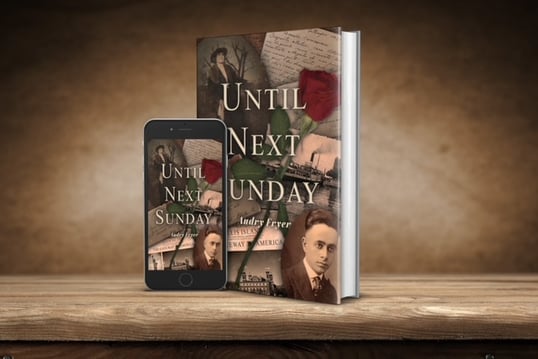I learned the hard way about the importance of a good editor. The first book I ever self-published received a review on Goodreads that went something like this, “My biggest problem with this book was the lack of editing. An editor would have made this book so much more enjoyable.”
Ouch! This review stung, but it forced me to make a helpful realization. I couldn’t be both the writer and the editor. Even if I often took pride in my language and grammatical skills, I needed a second set of eyes to catch all the typos and inconsistencies I overlooked.
Motivated by this review, I found a professional editor within my budget to give my first book the polished finish it deserved.
What is the importance of a good editor to a writer?
A good editor improves your writing quality, enhances the clarity of your ideas, and makes your writing fit for an audience. An editor, especially a talented one, helps your writing become the best version of itself.
When I completed the manuscript for my latest novel, Until Next Sunday, I had no question that hiring an editor needed to be the next step. After countless attempts to create a cohesive story based on over one hundred translated love letters, I understood that I had gone as far as I could go on my own.
I needed an editor to be an objective reader and spot where the story needed extra work. Plus, I knew there was no way I'd ever be able to catch all the typos and grammatical errors.
Since I had collaborated with a trio of sisters to write the story based on their grandparents’ love letters, I explained to them the need for an editor. They agreed and hired Anya Kagan from Touchstone Editors.
What do editors do for writers?
Editors provide four basic types of editing services. Depending on the scope of your project, you may need to hire an editor for all of these categories. Also, it’s beneficial to hire a different person for each type of editing.
4 Basic Types of Editing
- Developmental editing
- Line editing
- Copy editing
- Proofreading
Developmental Editing
Developmental editors examine the story or written material as a whole.They focus on the “big picture” issues and the overall structure including adding or removing scenes. A developmental editor searches for plot holes and works to improve character development. Also, this type of editing often makes recommendations for world-building.
The editing journey for Until Next Sunday began with developmental editing. My editor, Anya, provided helpful recommendations that resulted in the most extensive changes to the original draft.
Line Editing
Line editors study and review the word choice, the style, and the voice of a piece of writing or manuscript. This type of editing catches repetitive phrasing, inconsistencies, and awkward tones.
After making the developmental revisions on my manuscript, I resubmitted it back to my editor for the next round of line editing and copy editing. At this point, the focus shifted to the readability of the text.
Copy Editing
Although similar to line editing, copy editing focuses on the grammatical aspects. Editors look to correct spelling, grammar, and punctuation issues. Also, a copy editor searches for overused words, poor word choice, and modifier errors.
The copy editing for Until Next Sunday helped create sentences and paragraphs that flowed without disruption. Many of the positive reviews we have received about the book mention the ease of reading it.
Proofreading
Proofreading is the last step in any editing process. A proofreader goes through your manuscript or written work determined to find typos, grammatical errors, and formatting issues. Proofreading adds the final polish to make your work shine.
One of the reasons you can’t edit your own work is a “blindness” that occurs when you’ve gone over a piece of writing too often. Your brain tricks you and causes you not to see even the most glaring typos and errors.
The same “blindness” can happen to your editor if they have worked extensively on your writing. Because my editor, Anya, had read my manuscript several times, she lost her ability to spot areas in need of correction. So, she had a fellow editor proofread the manuscript.
5 Tips For Working With An Editor
After Anya had completed the first round of developmental edits, I got my first dose of the reality of working with a professional editor. Anya had sliced and diced my original manuscript so much that one of the sisters that I was collaborating with asked, “Are you okay?”
It’s not easy to have someone go through your work and point out every misstep and mistake. However, how will your work ever improve if you don’t know where to start?
Acknowledging this, I put my ego in check, dove headfirst into her keen editorial suggestions, and began making the recommended changes.
It paid off! The multiple rounds of edits transformed my manuscript. The plot made sense, the story moved at an entertaining pace, and the little details gained consistency. Plus, I bid farewell to those pesky grammatical errors and typos.
If you’re planning to work with an editor, consider these five tips:
- Set aside your ego and listen without being defensive.
- Be open to suggestions and an objective opinion of your writing.
- Communicate your writing needs with your editor. This process is a two-way street.
- Be prepared to rewrite and re-think your project.
- Remember that editors are human, too. You may not want to honor every recommendation.
What makes a good editor for writers?
If you’re planning to work with an editor, consider these three book editor skills:
- Professional experience - You could try to save money by hiring a friend or family member to edit your work, but I wouldn’t recommend it. You’ll save yourself precious time by hiring a professional editor. Look for an editor with experience, expertise, knowledge of the publishing industry, and solid interpersonal and organizational skills.
- Genre familiarity - Your manuscript will benefit from an editor who understands your genre. Especially in the developmental edit, an editor who knows the tropes and expectations of your genre can help you properly structure your story.
- Transparency and clarity - A professional editor should provide you with a detailed upfront breakdown of their terms, services, costs, fees, and other logistics. Also, you should have a clear plan of communication.
Final Thoughts
A professional editor can take your writing to the next level. Save yourself from receiving a poor book review (like I did) and invest in an editor. I’m glad I did, especially for my last book. I transformed my manuscript from a hot mess to a polished work by working with an editor. When Until Next Sunday was released into the world, it felt so good to be confident about the quality of the writing.
****************
Audry's book Until Next Sunday is part of the WOW! Women on Writing Tour. You can find out more about Audry, her book, and the tour at https://muffin.wow-womenonwriting.com
 Author bio:
Author bio:
Audry Fryer is an author and professional freelance writer from Pennsylvania. Formerly a teacher, Audry wrote her first novel while her toddler son and twin babies napped. As her children have grown into teenagers, she has expanded her writing career. Audry lives with her family and two pugs in a quiet corner of Southeastern PA. To learn more about Audry, please visit her website at www.audryfryer.com




Leave Comment